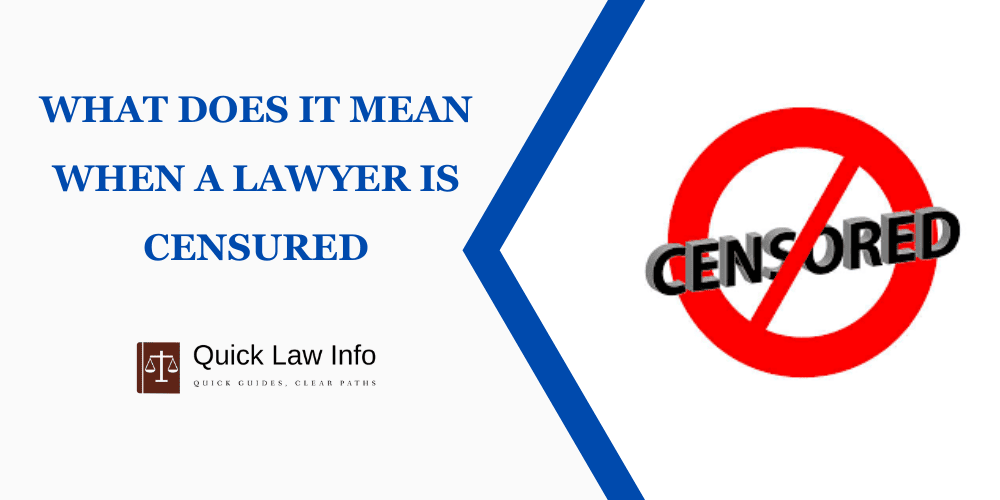In the world of law, legal professionals closely scrutinize the conduct of lawyers to ensure the integrity of the legal profession. Lawyers must adhere to high ethical standards, and any deviation from these standards can lead to disciplinary actions. One such disciplinary action is censure.
In this article, we will explore the meaning of censure for a lawyer and the implications of this disciplinary measure.
Understanding Legal Ethics
A censured lawyer is an attorney who has been formally reprimanded or criticized by a legal authority, such as a state bar association or a court, due to misconduct or ethical violations. Legal authorities take censure as a disciplinary action to express disapproval of lawyers’ actions and to hold them accountable for their professional misconduct.
- The Role of Lawyers
Lawyers play an essential role in the legal system. They represent clients, advocate for justice, and ensure that the rule of law is upheld. This responsibility extends to ethical conduct in all aspects of their work.
- Legal Ethics
Legal ethics are a set of guidelines and principles that govern the behavior and conduct of lawyers. These ethics ensure that lawyers act with integrity, professionalism, and honesty throughout their careers.
Lawyer Discipline
When lawyers fail to meet the ethical standards expected of them, they may face disciplinary action. This discipline is necessary to maintain the public’s trust in the legal system and to protect the interests of clients.
Read More: How To Fire A Lawyer And Get Money Back
Types of Disciplinary Actions
Disciplinary actions can range from mild to severe, depending on the nature and severity of the ethical violation.
Common disciplinary actions include:
- Reprimands
- Suspensions
- Disbarments
- Censures
What Does Censure Lawyer Meaning?
An attorney who has been formally reprimanded or criticized by a legal authority, such as a state bar association or a court, due to misconduct or ethical violations, is a censured lawyer. Legal authorities take censure as a disciplinary action to express disapproval of lawyers’ actions and to hold them accountable for their professional misconduct.
It is a way of acknowledging and addressing the lawyer’s wrongdoing without taking more severe measures like suspension or disbarment. Censured lawyers have typically violated ethical rules or professional standards, and the censure serves as a formal record of their misconduct, potentially affecting their reputation and standing within the legal community.
Reasons for Censure
Lawyers may be censured for a variety of reasons, including:
Conflict of Interest
- When a lawyer’s personal interests conflict with those of their clients, it can result in censure.
Misappropriation of Funds
- Mishandling client funds or using them for personal gain is a severe ethical violation that can lead to censure.
Fraudulent Conduct
- Engaging in fraudulent activities, such as falsifying evidence or misleading the court, can result in censure.
Failure to Maintain Confidentiality
- Lawyers are bound by strict rules of confidentiality. Breaching client confidentiality can lead to censure.
The Censure Process
- The censure process typically involves an investigation by a legal disciplinary board. If the board discovers evidence of ethical violations, they may issue a public censure. This censure is often accompanied by a detailed report outlining the reasons for the disciplinary action.
Implications of Censure
- Censuring a lawyer significantly impacts their career and reputation within the legal community.
Professional Reputation
- Censure tarnishes a lawyer’s professional reputation. It becomes a matter of public record, and potential clients may think twice before seeking their services.
Conclusion
In conclusion, when legal authorities censure a lawyer, it indicates that the lawyer has seriously breached ethical standards within the legal profession. Legal authorities issue this public reprimand to protect the interests of clients and uphold the integrity of the legal system. Lawyers must always strive to uphold the highest ethical standards to avoid facing such disciplinary actions.
